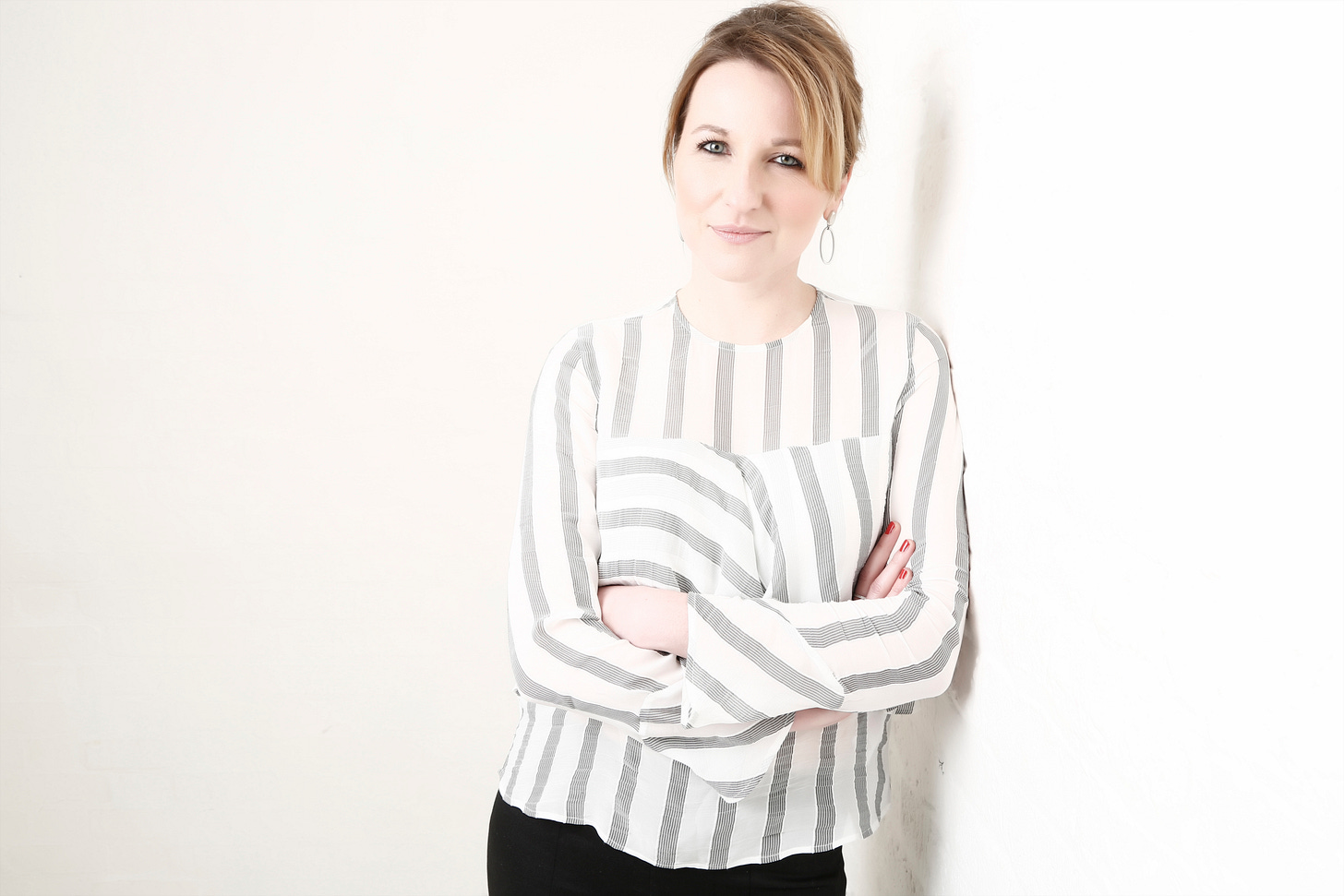Welcome to our #56 weekly newsletter.
Every week we curate key content and apply a female-lens so you can stay informed and inspired about money and investing.
Stay in the know.
Keep on top of global economic, financial and investing news and trends. And read about what this means for you and your money in 2021 during Covid-19 and beyond.
If you’re short on time, listen to the audio for a brief overview.
“For women taking control of their financial future”
-Jana Hlistova
From The Purse
Editorial from the Founder
The US deficit is projected at $2.3tn in 2021 (not counting the additional $1.9tn stimulus). On Thursday, the Congress Budget Office said the inflated level comes from the added spending that Congress has instituted to combat the effects of the pandemic and the economic disruption this has caused.
The US Federal Reserve confirmed interest rates will stay low for a while, and the true unemployment rate is likely to be closer to 10%.
The European Central Bank (ECB) balance sheet has hit an all-time high as the money printing continues: total assets rose by another €21.1bn this past week.
UK GDP fell by 9.9% in 2020 due to the pandemic: this is the biggest fall in annual GDP since the Great Frost of 1709, when the economy shrank by 13%. The economy avoided a double-dip recession, with growth of 1% in Q4 of 2020.
Investors poured $58bn into global stocks last week: historically low interest rates and expectations for a big rebound this year in global economic growth is driving investor decisions.
Tesla purchased $1.5bn in Bitcoin (disclosed last Monday). This is biggest endorsement of the cryptocurrency by a mainstream company. Tesla also said it would begin accepting the digital token as a form of payment for its electric cars.
More institutions pile into crypto: Mastercard will let merchants accept payments in crypto this year and New-York based banking giant BY Mellon is developing a prototype that it claims will be the financial industry’s ‘first multi-asset digital custody and administration platform’ for both traditional and digital assets.
Not surprisingly, bitcoin hit an all-time high ie above $49,000 on Friday (market cap crossed $900bn) and ether leads the DeFi way: it set a new all-time high above $1,850 (Friday).
On Thursday, Bumble (the online dating app) listed on the Nasdaq (it raised $2.2bn), exceeding expectations which valued the company at over $7bn. At 31, CEO & Founder, Whitney Wolfe Herd is the youngest female founder to take a U.S. company public on the extremely small list of women founders who led IPOs.
The Women and Equalities committee have produced a report on gendered economic differences and focused specifically on these two schemes: furlough & the Self Employment Income Support Scheme (SEISS). They argued investment plans that are skewed towards male-dominated sectors have the potential to create unequal outcomes for men and women, exacerbating existing inequalities.
Women who may have been forced to bring forward retirement plans due to the pressures of Covid-19 must make sure their pension pots are robust enough so they do not run out of money (during retirement).
And we are tracking Astia, a global organisation which invests, advises and partners to level the investment playing field (for women). Astia has launched a $100m early-stage fund which will invest globally in high-growth companies that have at least one woman in an executive equity-holding position. The Astia fund has been led by an investment from Mastercard.
And don’t forget to listen to The Purse Podcast: we have published our interview with Julia Angeles who is the Portfolio Manager of the Health Innovation Strategy at Baillie Gifford. We talk about biotech and healthcare, why we are on the cusp on a revolution in healthcare, investing in Moderna Inc, what it is like being part of an all-female fund team and more.


Stay safe, look after yourselves and your loved ones.
I hope you enjoy this week’s newsletter.
Until next week,
Jana
The Big Picture
Global markets and economy news, trends and indicators
US deficit projected at $2.3tn in 2021 (not counting additional $1.9tn stimulus)
The Congress Budget Office said the inflated level comes from the added spending that Congress has instituted to combat the effects of the pandemic and the economic disruption this has caused.
Federal debt will increase to $35.3tn in 2031; the largest debt-to-GDP ratio in U.S. history.
The Fed is keeping its benchmark short-term borrowing rate near zero and is buying at least $120 billion of bonds each month.
More than 10m workers are still without jobs; 4.4m higher than before the pandemic a year ago.
‘Despite the surprising speed of recovery early on, we are still very far from a strong labor market whose benefits are broadly shared', Jerome Powell said.
European Central Bank (ECB) balance sheet hits an all-time high
The money printing continues: total assets rose by another €21.1bn to €7,054.5bn this past week.
ECB balance sheet is now equal 70.7% to Eurozone GDP vs Fed’s 34.5% vs BoE’s 36.4% or BoJ’s (which is the highest) at 131.6%.
UK economy: GDP fell by 9.9% in 2020 (due to Covid shock)
This is the biggest fall in annual GDP since the Great Frost of 1709, when the economy shrank by 13%.
The economy avoided a double-dip recession, with growth of 1% in Q4 of 2020.
Investors poured $58bn into global stocks last week
Technology-focused funds dominated: with net inflows reaching an all-time high of $5.4bn in the week to Wednesday.
The US had the majority of overall stock inflows, at $36.3bn.
Investors also piled $13.1bn into global bond funds ($10.6bn was from their cash piles).
Historically low interest rates and expectations for a big rebound this year in global economic growth is driving investor decisions.
Bitcoin & cryptocurrencies
Global news, trends and insights
Tesla purchased $1.5bn in Bitcoin (disclosed Monday)
This is biggest endorsement of the cryptocurrency by a mainstream company.
Tesla also said it would begin accepting the digital token as a form of payment for its electric cars.
The digital asset jumped as much as 16% after Tesla (on disclosure) with prices exceeding $44,000 for the first time.
Tesla made an approximate $270m gain on the first day (price of bitcoin went up).
Mastercard will let merchants accept payments in crypto this year
Mastercard customers’ digital currency payments will be settled in crypto at participating merchants- a first for the financial giant.
It is currently unclear which cryptocurrencies will be supported (and where).
BY Mellon reveals plans for bitcoin and crypto
The $2tn New-York based banking giant, is developing a prototype that it claims will be the financial industry’s ‘first multi-asset digital custody and administration platform’ for both traditional and digital assets.
Bitcoin hit an all-time high: above $49,000 (market cap crossed $900bn).
On Friday, Bitcoin set a new record above $49,000 after trading between $47,000 and $48,000 for much of Thursday.
Institutional investors’ interest in bitcoin is growing ‘at a staggering pace’, which continues to drive up the price of bitcoin.
Ether leads the DeFi way: sets new all-time high above $1,850 (Friday)
Ether (ETH), the second-largest cryptocurrency by market capitalisation, was up Friday trading around $1,850 and climbing 3% in 24 hours.
Ether’s fresh highs come the same week the CME launched its ether futures market (despite traders expecting the opposite).
Since CME’s futures launch, ether has rallied over 12%.
Future Focus
Keeping an eye on key predictions, innovations and what’s going to impact the future
Global green recovery plans fail to match 2008 stimulus
According to a report published by Vivid Economics:
only about 12% of the spending on economic rescue packages around the world is going towards low-carbon projects, such as renewable energy and clean technology.
Think tank: the U.K. economy will remain below its pre-Covid levels until the end of 2023
The National Institute of Economic and Social Research (Niesr) cut its forecast for growth this year to 3.4% from 5.9% in October.
It sees unemployment climb to 7.5% and inflation low at 1.3%, by end 2021.
Niesr said fiscal stimulus was ‘money well spent’ and a premature end risks delaying the rebound.
Companies: winners & losers
Companies to watch and share price movements
US: Bumble’s initial public offering (IPO): raises $2.2bn
On Thursday, Bumble listed its shares on the Nasdaq, which exceeded expectations and valued the company at over $7bn.
Q3 2020, it boasted nearly 42 million active users.
Between Jan. 29 and Sept. 30, Bumble reported revenue of about $376.6m and a net loss of $84.1m, slim gains in comparison to competitors like Match.
Reported net income of $132.1m and revenue of roughly $640m in just Q3.
At 31, CEO & Founder, Whitney Wolfe Herd is the youngest female founder to take a U.S. company public on the extremely small list of women founders who led IPOs.
Twitter racks up its second $1bn quarter (shares at a 52 week high)
Twitter reported net income of $222m, or 29cents a share, against expectations of 29cents a share, according to analysts polled by FactSet. (Adjusted earnings were 38cents a share.)
Twitter’s revenue surged 28% to a record $1.29bn, beating the consensus estimate of $1.18bn.
Monetisable daily active users, a key indicator of Twitter’s reach and its appeal to advertisers, improved 27%, year-over-year, to 192m (but it fell short of the 193.5m expected by analysts polled by FactSet).
Additional note: Twitter has also studied how it might pay employees or vendors using bitcoin, according to the Chief Financial Officer.
Your Money
Insights, trends and what this means for you and your purse
UK: Gender inequality warning: furlough & SEISS issues arise
The Women and Equalities committee produced a report on gendered economic differences and focused specifically on these two schemes: furlough & the Self Employment Income Support Scheme (SEISS).
They argued investment plans that are skewed towards male-dominated sectors have the potential to create unequal outcomes for men and women, exacerbating existing inequalities.
Have You Seen This?
Female-focused news, reports, research, campaigns
Warning on women’s pensions, post-Covid
Women who may have been forced to bring forward retirement plans due to the pressures of Covid-19 must make sure their pension pots are robust enough so they do not run out of money (during retirement).
According to Deborah Chapman, personal wealth adviser at Schroders Personal Wealth:
‘Having a plan is key when looking to see if your pension pots will last the course. It’s essential to start to plan as soon as possible’.
She urged people to speak with a financial adviser, review all their different sources of capital and income, and take steps to fund any deficit.
Know this: Based on the research by the Chartered Insurance Institute (CII): the average 65-year-old woman's pension pot is £38,000 ie five times lower than the average 65-year-old male's pension pot. The CII research estimated that while the pay gap will persist until 2050 unless there is intervention, the pensions gap will remain wide until 2100.
What We’re Tracking
Female and diversity-focused products or services, start-ups and businesses led by women/diverse founders, investment and research.
Astia (Astia Fund, Astia Angels & Astia Edge) (US/global): (CEO and Managing Director, Sharon Vosmek)-is a global organisation which invests, advises and partners to level the investment playing field (for women).
Astia has launched a $100m early-stage fund which will invest globally in high-growth companies that have at least one woman in an executive equity-holding position.
The Astia fund has been led by an investment from Mastercard.
The new fund is open to UK institutional investors, family offices, corporates, foundations, endowments, pension funds and high-net worth individuals.
Coffee Break? Read This
We’d love to hear from you. Get in touch with Jana via the The Purse website or tweet @jointhepurse and @janicka.
The Purse Ltd. Copyright 2021 & All Rights Reserved.





















Share this post